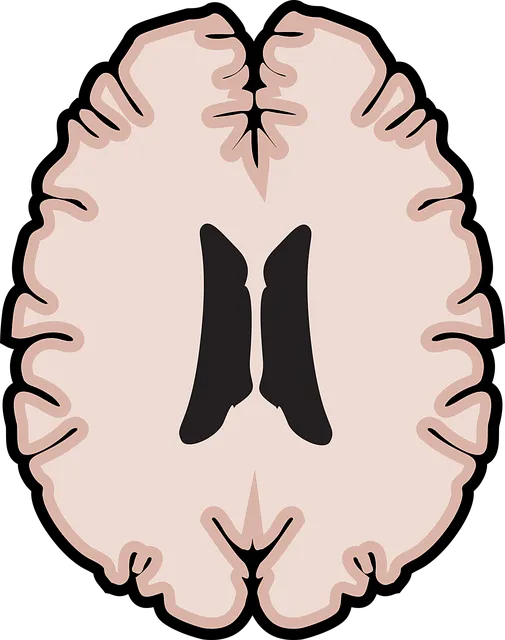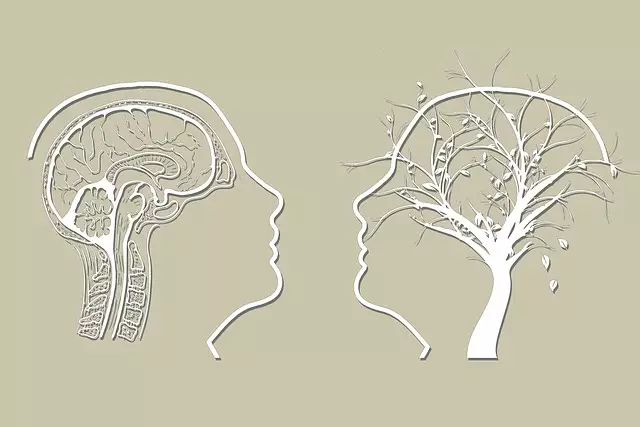Media significantly influences societal perceptions of mental health, with accurate representations fostering empathy and reducing stigma, while negative portrayals perpetuate misconceptions. The Kaiser Permanente mental health centers in Golden play a key role in reshaping public views through compassionate care, innovative programs like Social Skills Training and Positive Thinking workshops, and evidence-based practices. To promote responsible media representation, engaging with professionals from these centers ensures nuanced depictions of mental illness, challenging stereotypes and encouraging empathy. Community engagement, open conversations about well-being, and collaborative efforts between media and communities drive positive change in mental health awareness and support systems.
“In today’s media-driven world, the representation of mental illness plays a pivotal role in shaping public perception. This article delves into the impact of media portrayal on mental health stigma and explores solutions. We highlight the efforts of Kaiser Permanente mental health centers, particularly in Golden, for promoting accurate and sensitive depiction of mental illnesses. Through comprehensive strategies, responsible journalism, and community engagement, we aim to challenge stereotypes and foster a more inclusive environment.”
- Understanding the Impact of Media Portrayal on Mental Health Perception
- The Role of Kaiser Permanente Mental Health Centers in Promoting Accurate Representation
- Strategies for Enhancing Media's Depiction of Mental Illness: A Comprehensive Approach
- Encouraging Responsible Journalism and Community Engagement for Positive Change
Understanding the Impact of Media Portrayal on Mental Health Perception

The media plays a significant role in shaping societal perceptions about mental health. How mental illnesses are represented in films, television shows, and news coverage can influence public understanding and attitudes towards individuals living with these conditions. Positive and accurate media portrayal can foster empathy, reduce stigma, and encourage support for those seeking help. Conversely, negative or stereotypical representations can perpetuate misconceptions, leading to further marginalization of already vulnerable communities. For instance, a study by the Kaiser Permanente mental health center in Golden found that media narratives often depict individuals with mental illnesses as dangerous or unpredictable, contributing to public fear and misinformed decisions.
Community outreach programs and initiatives like Social Skills Training and workshops on Positive Thinking can work hand-in-hand with responsible media representation to combat these negative effects. By encouraging open dialogue, educating communities about various aspects of mental health, and showcasing recovery stories, these efforts can promote a more nuanced understanding. Ultimately, a balanced and empathetic media approach, coupled with community engagement strategies, is crucial in challenging stereotypes and fostering an environment where individuals feel empowered to seek support for their mental well-being.
The Role of Kaiser Permanente Mental Health Centers in Promoting Accurate Representation

The Kaiser Permanente mental health centers in Golden play a pivotal role in shaping public perception by promoting accurate and compassionate representation of mental illness. These centers serve as hubs for innovative programs that address a wide range of psychological and emotional challenges, focusing on both treatment and prevention strategies. They actively work to dispel stereotypes often associated with mental health issues through education and awareness campaigns, emphasizing the importance of early intervention and support networks.
By integrating evidence-based practices and Mind Over Matter principles, Kaiser Permanente’s Golden mental health centers contribute significantly to burnout prevention and resilience building. Their commitment to community engagement ensures that individuals facing mental health struggles receive comprehensive care tailored to their unique needs. This approach not only fosters recovery but also encourages open conversations about mental well-being, creating a more supportive and understanding environment for all.
Strategies for Enhancing Media's Depiction of Mental Illness: A Comprehensive Approach

Media has a profound impact on shaping societal perceptions, especially when it comes to mental health. A comprehensive approach is necessary to enhance the depiction of mental illness in media, ensuring accuracy and sensitivity. One effective strategy is to collaborate with mental health professionals, such as those available at Kaiser Permanente mental health centers, Golden. Their expertise can guide content creators in accurately representing various conditions, dispelling stereotypes, and providing a more nuanced understanding.
Additionally, promoting diverse narratives featuring individuals with mental illness can foster empathy and break down barriers. Encouraging open conversations about trauma support services and the benefits of positive thinking can also make a significant difference. By integrating these strategies, media platforms can contribute to reducing stigma, encouraging early intervention, and fostering a more supportive environment for those facing mental health challenges.
Encouraging Responsible Journalism and Community Engagement for Positive Change

In the pursuit of accurate mental illness representation, media plays a pivotal role. Encouraging responsible journalism involves showcasing diverse narratives and perspectives on mental health issues, dispelling stereotypes, and fostering empathy within communities. By integrating real-life experiences from individuals in areas like the Kaiser Permanente mental health center in Golden, media outlets can contribute to breaking down barriers and promoting understanding. Community engagement is equally essential; it encourages open dialogue, fosters support systems, and empowers people to seek help without fear of stigma.
This collaborative effort goes beyond simply informing; it facilitates a shift in societal attitudes. Techniques such as Emotional Well-being Promotion and Mind Over Matter Principles can be leveraged through media platforms to offer practical advice and Anxiety Relief strategies. By involving communities in these discussions, we create an environment where mental health is prioritized, and positive change becomes a shared responsibility.
Mental illness representation in media plays a pivotal role in shaping public perception and access to care. By fostering responsible journalism and community engagement, we can significantly enhance accurate depiction of mental health issues. Kaiser Permanente mental health centers, like those in Golden, serve as key resources, promoting understanding and providing strategies for better representation. Through collaborative efforts, we can create a more inclusive and supportive society, where media reflects the diverse experiences of individuals living with mental illness.






